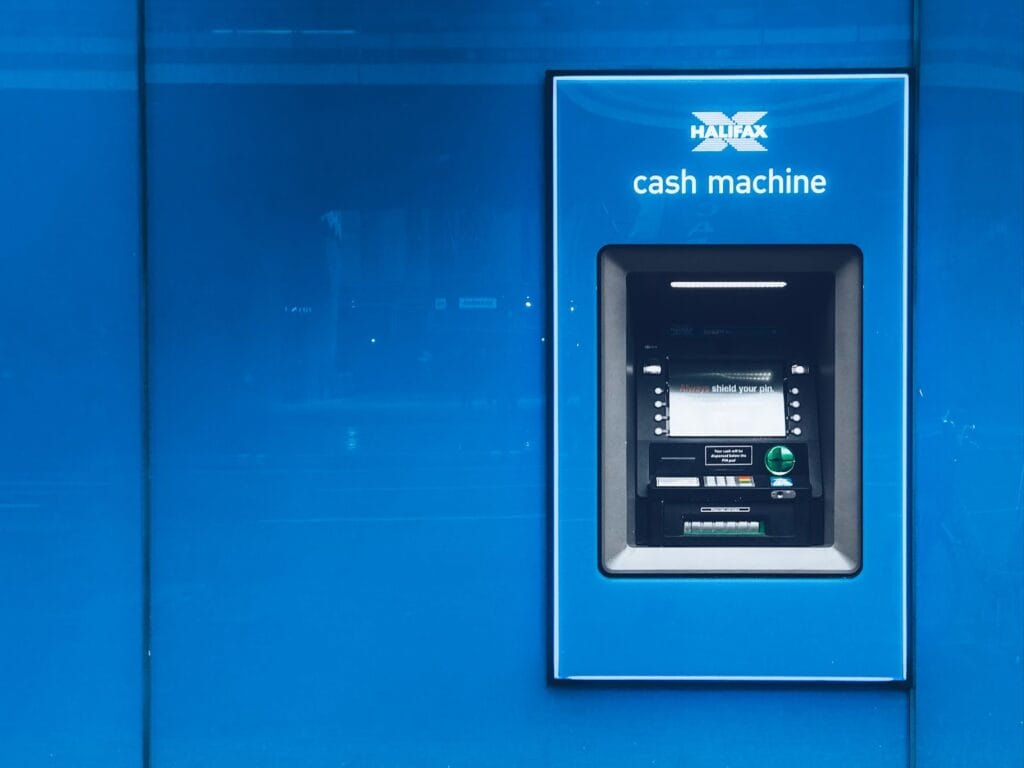How Much of a Raise to Ask For (with example scenario)


Knowing to ask how much for a raise can be an impossible task. In this post, you'll learn:
- How much you should be asking for.
- How to figure out your salary band and what to do next.
- An example scenario of how to ask for a raise, depending on your salary band.
There’s no magic formula – finding the right number will need effort
According to Investopedia, the amount you seek in a raise should reflect your tenure with your employer and your role within the company. Aiming for a 10% to 20% increase from your current salary is generally seen as a good, reasonable starting point. But with a bit of research, you can get to an exact asking number – and make yourself much more likely to get it..
It takes a bit more effort than just picking an arbitrary percentage, but you’re not going to want to cut corners here. Beyond just earning more, knowing your number will also help in other ways:
- It Gives You Confidence: Knowing the exact figure you should ask for can significantly boost your confidence during salary negotiations. Being aware of how much of a salary increase you should request diminishes the chances of rejection, rendering the negotiation process less stressful and more successful.
- It Shows That You've Done Your Research: Presenting a well-researched and thought-out raise request reflects your commitment and seriousness about your job. Hiring managers or your current employer will appreciate your proactive approach, viewing your request as more than a year-long expectation but a testament to your investment in the role.
- You Know Your Worth: By understanding the average pay raise and how your current salary compares to similar positions in the job sector, you ensure you don't settle for less than you deserve. A well-deserved raise should correlate with your job duties and responsibilities, considering average pay raises in your field.
That being said, if your raise request is turned down, knowing your demand was within a reasonable percentage increase after a comprehensive review of job posts, you can consider whether it might be time to seek other job opportunities.
Using Glassdoor to Figure Out Your Number
Glassdoor is more than just a site for job reviews. It also serves as a valuable resource for wage and salary rates, arming you with the necessary data to request a compelling salary raise. Understanding the average salary ranges listed on such platforms gives you more bargaining power. Here's how you can use it:
Understanding the Salary Bands

Salary bands show you the range of salaries for your position. Checking where you stand, whether at the bottom, middle, or top of the band, can help you understand the competitive salary rates for similar positions. Always point to the market when asking for a raise instead of requesting an arbitrary percentage.
If you've been in your role for more than five years, it might be time to reflect on whether your regular annual salary increases have been consistent with the national average. If not, this may indicate that your salary has fallen behind.
If you're at the low end of the salary band
Finding yourself at the low end of the salary band isn't a poor position to be in. It's an opportunity. This is especially true if you are an average or underperforming employee looking to improve. It allows you to demonstrate your job performance, make a case for yourself, and request to be moved closer to the band's center or even upper echelons, giving you a chance to save more money and bolster your bank account.
In this scenario, take the time to research pay rates for the same jobs and prepare a well-structured argument for your raise. A standard pay increase could be anywhere from a 3-5% raise.
If you're in the middle of the salary band
Being in the middle of the band is advantageous if you're a top performer. You can make a case that you excel at your job duties and should be moved to the higher end of the band. To accomplish this, consider using your past year's achievements as evidence of your superior performance.
Use concrete examples of how you've excelled in your role. Show how your contributions have positively impacted the company's bottom line, whether by improving efficiency, increasing sales, or enhancing customer satisfaction. It's also essential to demonstrate your capability to handle additional responsibilities or complex projects, showing that you're not just an average employee but a key contributor to your team's success.
If you're at the high end of the salary band
Being at the high end of the salary band presents a more complex challenge. No amount of salary negotiation will help you exceed the salary bands, regardless of how exceptional your job performance may be.
Consider asking for a promotion or a title bump instead of a raise in this scenario. In addition, you should negotiate for additional benefits such as more paid vacation, a work-from-home arrangement, or performance-based bonuses. This way, you can achieve a higher overall compensation package, even if your base salary remains the same.
Once you secure the raise you deserve, here are some tips to help you say goodbye to money guilt once and for all:
The world wants you to be vanilla...
…but you don’t have to take the same path as everyone else. How would it look if you designed a Rich Life on your own terms? Take our quiz and find out:
A Salary Negotiation Example: Marketing Assistant
To put the theory into practice, let's consider an example of a Marketing Assistant earning $37,000 per year in California.
How to Approach this Situation at the Low End of the Band
Suppose you're earning $37,000, but the middle of the band is $45,000. In this case, you could approach your boss and say, "I've been excelling in my job for the past year, and according to Glassdoor, my current salary is at the lower end of the scale. Considering my performance, could we discuss adjusting my salary closer to the median of this range?"
This request comes from a position of understanding reasonable pay raise ranges and leveraging comparable salary ranges to make your case.
How to Make the Request in the Middle of the Band
If you're earning $45,000 and the top end of the band is $52,000, you could approach your boss with a proposition like, "Given my consistent performance and the value I've brought to our team, I believe my compensation should reflect those at the top end of our range. Could we explore this possibility?"
This inquiry positions you as a confident and data-backed individual ready to advocate for a deserved pay increase.
How to Confidently Ask at the High End of the Band
If you're earning $52,000 and at the top end of the band, you could propose a conversation like this, "I believe I've mastered my role and am ready for more responsibilities. Could we discuss potential avenues for career progression or enhancements in my benefits package?"

Do These Before Asking for a Raise
Here are some things to keep in mind when taking the leap to secure the salary increase you deserve:
Ensure that Your Compensation Reflects Your Worth
Negotiating for a higher salary is a significant step towards living a more financially secure life. It shows that you understand your value in the market and are willing to advocate for yourself. Your professional journey involves more than just doing your job well; it also involves ensuring that your compensation reflects your worth.
Use Data to Your Advantage
Remember, data is power. Resources like Glassdoor, Salary.com, and other free salary report platforms can provide invaluable information to back your negotiation. They allow you to understand comparable salary ranges, pay increment trends, and real wage growth in your job sector, ultimately giving you more bargaining power.
Don't Be Afraid to Negotiate
Negotiating your salary with an employer is a crucial step in ensuring you are fairly compensated for your skills and contributions. Don't be afraid to negotiate because it demonstrates your value and confidence and can lead to better financial rewards and job satisfaction in the long run. After all, employers expect negotiations, and engaging in a thoughtful conversation about your worth can open doors to more significant opportunities and respect in the workplace.
Remember that Not Every Negotiation Is the Same
Ultimately, it's crucial to remember that every negotiation will be different, impacted by factors such as job responsibilities, job performance, the hiring company's compensation package, the state of the economy, and softer labor markets. Don't be disheartened if you don't get the raise you requested. The important thing is that you asked, advocated for yourself, and initiated a conversation that could lead to a more significant raise.
For example, if, for some reason, the company cannot meet your salary increase request due to financial constraints, they might be open to reviewing your salary again in the future or providing additional benefits, such as a work-from-home arrangement, to offset any additional costs tied to your role. These discussions can also lead to opportunities for career advancement, which could come with higher salary bands and more benefits.
Understand Your Industry
Understanding your industry and what the typical pay increases are can help determine if you are ready to make that request or not. Understanding the average salary increase trends for government workers or job holders in sectors with strictly defined pay scales can help set realistic expectations and equip you with the necessary information when asking for a cost-of-living adjustment or a well-deserved raise.
Willis Towers Watson's data revealed some intriguing insights about expected salary increments. While corporate executives and professional employees could see a 3% raise, manual laborers might anticipate a 2.8% increase. Interestingly, pharmaceutical employees could pocket the highest raise at 3.1%, while retail sectors project the lowest raise of 2.9%.
In essence, a 3% salary increase is the norm across most industries. So, as you set your sights on a salary boost, especially if last year was disappointing, this is a realistic figure to aim for.
Ensure You've Established Your Value
Remember that employers do not only consider job performance when determining pay raises. They also consider factors such as your overall attitude, punctuality, willingness to take on additional tasks, and ability to work well with others. Therefore, in addition to focusing on improving your job skills, consider how you can positively impact your work environment.
Wrapping Up
A raise is more than just additional money tied to your job. It's an acknowledgment of your hard work and a testament to your value within your current or prospective employer. It might take some effort, but with the proper research, a well-considered request, and a professional approach, you can successfully navigate the salary negotiation process and secure the raise you are worth.
If you're wondering about the best timing for this conversation, check out our guide on when to ask for a raise. This resource can help you strategically plan your approach.
With this information, we hope you'll have the confidence to go forth, know your worth, and secure the dream job you deserve!
FAQs
How much of a raise should I ask for?
Aim for a 5% to 10% raise for a standard increase. If you're underpaid or have extra duties, 10% to 20% could be fair. Back it up with research on sites like Glassdoor and highlight your achievements. Pick the right time to ask, like after a big project win. Be ready to negotiate, and if cash is tight, think about other perks like more vacation or flex hours. Always base your ask on your performance and the going rate for your job.
Is a 5% raise good?
A 5% raise is decent, especially if it matches or beats inflation, boosting your buying power. But if you've taken on more work or are below the market rate, you might aim higher. Judge it based on your performance, the company's status, and what's usual in your industry.
When is a good time to ask for a raise?
Ask for a raise when you've got the leverage — right after crushing a big project, at your annual review, or before budget season kicks off. Show up armed with a list of your wins and data on what others in your role are earning. Timing and evidence are your best friends in this conversation.
How should I ask my boss for a raise?
Here’s the quick game plan for asking for a raise: Compile your wins and how you've boosted the company. Know what others in your role earn (check Glassdoor). Schedule a talk with your boss, framing it as a discussion on your career and pay. Practice your pitch, highlighting your value and the raise you’re seeking. Go in confident, ready to make your case and negotiate. Show them why boosting your pay is a win-win.